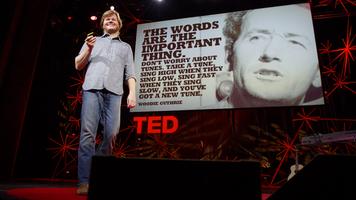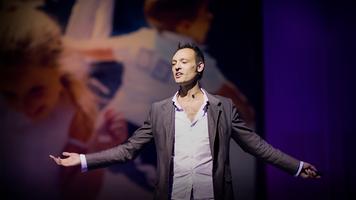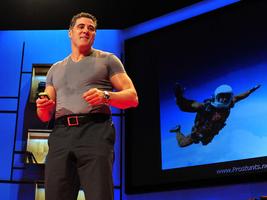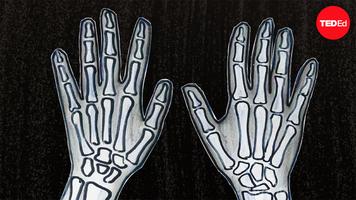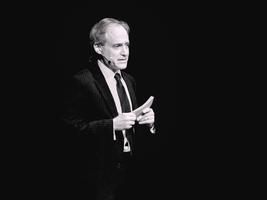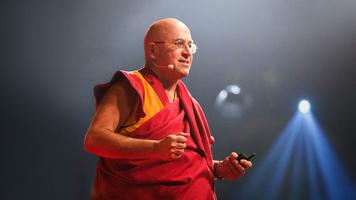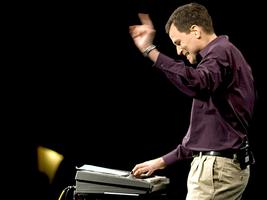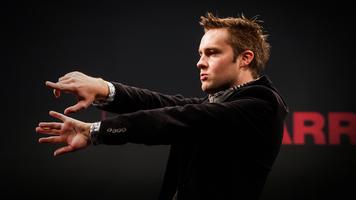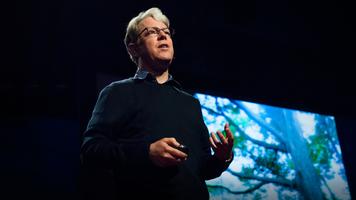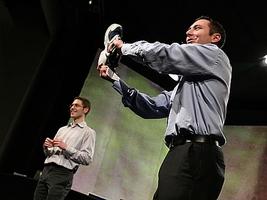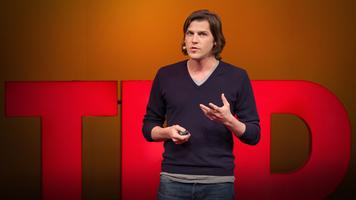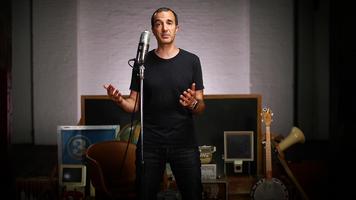Steve Long: Can we hack photosynthesis to feed the world?
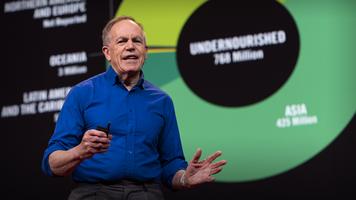
Photosynthesis is one of the most important processes on the planet, helping produce the food we eat and the air we breathe. Crop scientist Steve Long thinks it could be more efficient — and he's intent on giving it a boost. He shows how hacking photosynthesis could help feed the world all while reducing climate change.
Steven Addis: A father-daughter bond, one photo at a time
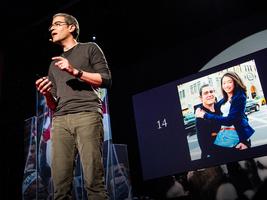
A long time ago in New York City, Steve Addis stood on a corner holding his 1-year-old daughter in his arms; his wife snapped a photo. The image has inspired an annual father-daughter ritual, where Addis and his daughter pose for the same picture, on the same corner, each year. Addis shares 15 treasured photographs from the series, and explores ...
Kirby Ferguson: Embrace the remix
Steve Keil: A manifesto for play, for Bulgaria and beyond
Steve Truglia: A leap from the edge of space
Eleanor Nelsen: Why do your knuckles pop?
Steve Howard: 4 hard truths about capitalism and climate
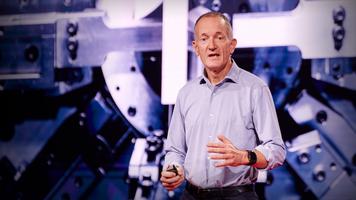
For decades, investor and business leader Steve Howard watched companies pour money and effort into sustainability initiatives ... and still fall short. The problem isn’t a lack of will, he says; it’s that capitalism and climate have been wired to work against each other. He shares four realities that explain why even well-intentioned businesses...
Steve Ramirez and Xu Liu: A mouse. A laser beam. A manipulated memory.
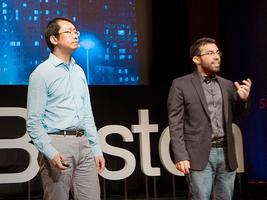
Can we edit the content of our memories? It's a sci-fi-tinged question that Steve Ramirez and Xu Liu are asking in their lab at MIT. Essentially, the pair shoot a laser beam into the brain of a living mouse to activate and manipulate its memory. In this unexpectedly amusing talk they share not only how, but -- more important -- why they do this.
Steve Simpson: How ocean noise destroys marine ecosystems

Noise pollution is normally seen as a problem for big cities. In this talk, marine biologist Steve Simpson sets the story straight, describing how human-made sounds are the culprits behind catastrophic marine disruptions. Simpson lays out several concrete methods for a relatively quick and easy fix to decrease our noise levels.
Steve McCarroll: How data is helping us unravel the mysteries of the brain
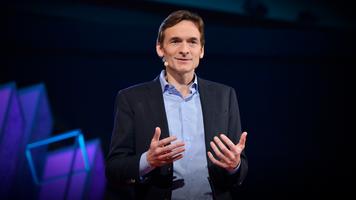
Geneticist Steve McCarroll wants to make an atlas of all the cells in the human body so that we can understand in precise detail how specific genes work, especially in the brain. In this fascinating talk, he shares his team's progress -- including their invention of "Drop-seq," a technology that allows scientists to analyze individual cells at a...
Steve Rothstein: Would you raise the bird that murdered your children?
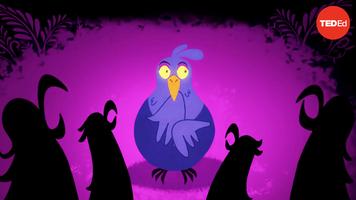
A mother honeyguide has placed its chick into a bee-eater's nest— puncturing all the other eggs in the nest and leaving only its own hatching alive. Over the following weeks, the host parents devotedly care for the hatchling whose mother murdered their offspring. This is brood parasitism, a phenomenon which is especially well-known among birds. ...
Steve Presley: Can global food companies make the shift to regenerative agriculture?
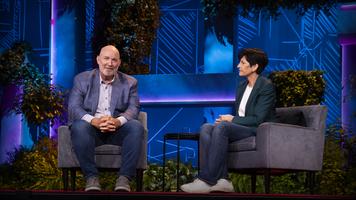
Sharing the inside scoop on how the world's largest food company aims to reach net zero by 2050, Nestlé North America CEO Steve Presley joins TED's Lindsay Levin to discuss the progress they've made so far and where they're investing for sustainability. A big focus will be regenerative agriculture -- producing food in a way that helps the planet...
Marc Pachter: The art of the interview
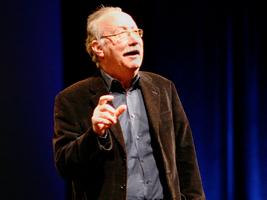
Marc Pachter has conducted live interviews with some of the most intriguing characters in recent American history as part of a remarkable series created for the Smithsonian's National Portrait Gallery. He reveals the secret to a great interview and shares extraordinary stories of talking with Steve Martin, Clare Booth Luce and more.
Dame Stephanie Shirley: Why do ambitious women have flat heads?
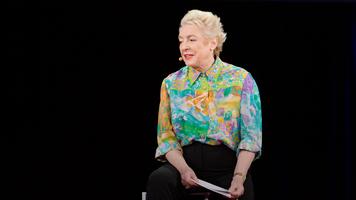
Dame Stephanie Shirley is the most successful tech entrepreneur you never heard of. In the 1960s, she founded a pioneering all-woman software company in the UK, which was ultimately valued at $3 billion, making millionaires of 70 of her team members. In this frank and often hilarious talk, she explains why she went by “Steve,” how she upended th...
Cella Wright: Can you figure out the savanna mystery?
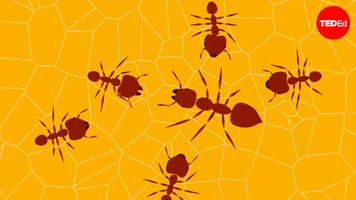
In the early 2000s, one of the world’s most widespread invasive species landed in Kenya’s Laikipia Plateau: big-headed ants. They expanded rapidly into super-colonies, preying on other insects, spiders, and even small birds. Their presence has wreaked havoc on the ecosystem and significantly changed the landscape. So, how did these tiny creature...
Jeffrey Kluger: The sibling bond
Matthieu Ricard: How to let altruism be your guide
Siyanda Mohutsiwa: How young Africans found a voice on Twitter
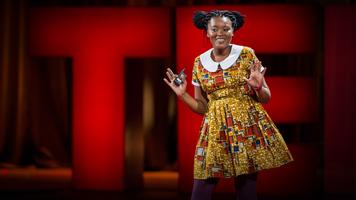
What can a young woman with an idea, an Internet connection and a bit of creativity achieve? That's all Siyanda Mohutsiwa needed to unite young African voices in a new way. Hear how Mohutsiwa and other young people across the continent are using social media to overcome borders and circumstance, accessing something they have long had to violentl...
Dean R. Lomax: A giant Jurassic sea dragon, unearthed
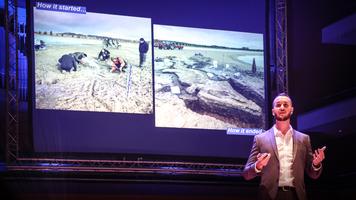
Among the dinosaurs, giant sea dragons roamed the ancient ocean. Millions of years later, paleontologist Dean R. Lomax and his team freed the remains of one of these colossal creatures from the Earth. Settle in to learn about the once-in-a-lifetime discovery of the 10-meter-long Rutland ichthyosaur: the largest and most complete ichthyosaur ever...
Thula Simpson: How did Apartheid happen, and how did it finally end?
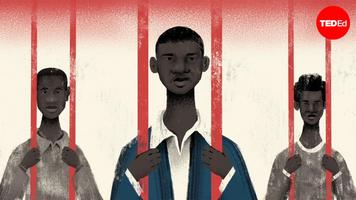
For 46 years, South Africans lived under Apartheid, a strict policy of segregation that barred the country’s Black majority from skilled, high-paying jobs, quality education, voting, and much more. So, how did these laws come to be? And how did this era of institutionalized discrimination finally come to an end? Thula Simpson explores how coloni...
David Pogue: The music wars
Keith Barry: Brain magic
Susan Cain and Min Kym: The hidden power of sad songs and rainy days
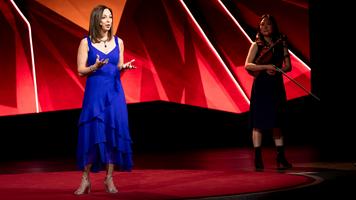
Have you ever wondered why you like sad music? Do you find comfort or inspiration in rainy days? In this profound, poetic talk, author Susan Cain invites you to embrace the feeling of longing -- or the place where joy and sorrow meet – as a gateway to creativity, connection and love. Accompanied by the splendid sounds of violinist Min Kym, Cain ...
Richard Preston: The mysterious lives of giant trees
Zach Kaplan + Keith Schacht: Toys and materials from the future
Jean-Baptiste Michel: The mathematics of history
Christine Porath: Why being respectful to your coworkers is good for business
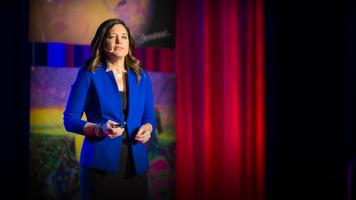
Looking to get ahead in your career? Start by being respectful to your coworkers, says leadership researcher Christine Porath. In this science-backed talk, she shares surprising insights about the costs of rudeness and shows how little acts of respect can boost your professional success -- and your company's bottom line.
Max Tegmark: How to keep AI under control
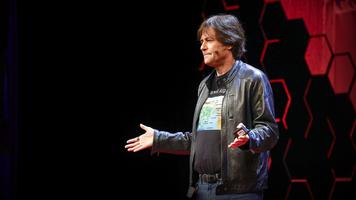
The current explosion of exciting commercial and open-source AI is likely to be followed, within a few years, by creepily superintelligent AI – which top researchers and experts fear could disempower or wipe out humanity. Scientist Max Tegmark describes an optimistic vision for how we can keep AI under control and ensure it's working for us, not...
Jad Abumrad: How Dolly Parton led me to an epiphany
Elizabeth Loftus: How reliable is your memory?
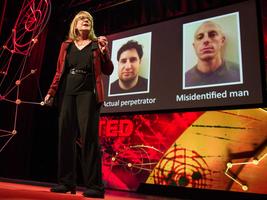
Psychologist Elizabeth Loftus studies memories. More precisely, she studies false memories, when people either remember things that didn't happen or remember them differently from the way they really were. It's more common than you might think, and Loftus shares some startling stories and statistics -- and raises some important ethical questions.
